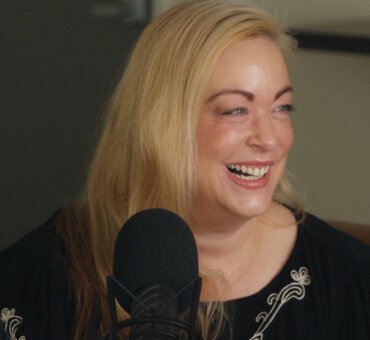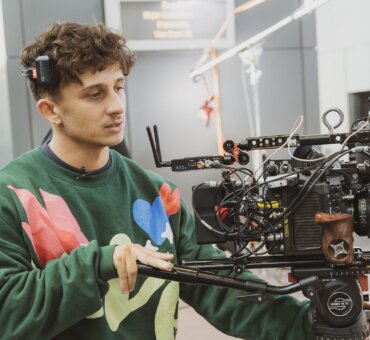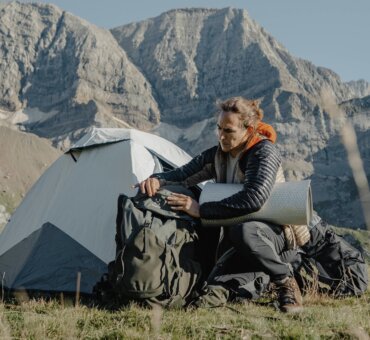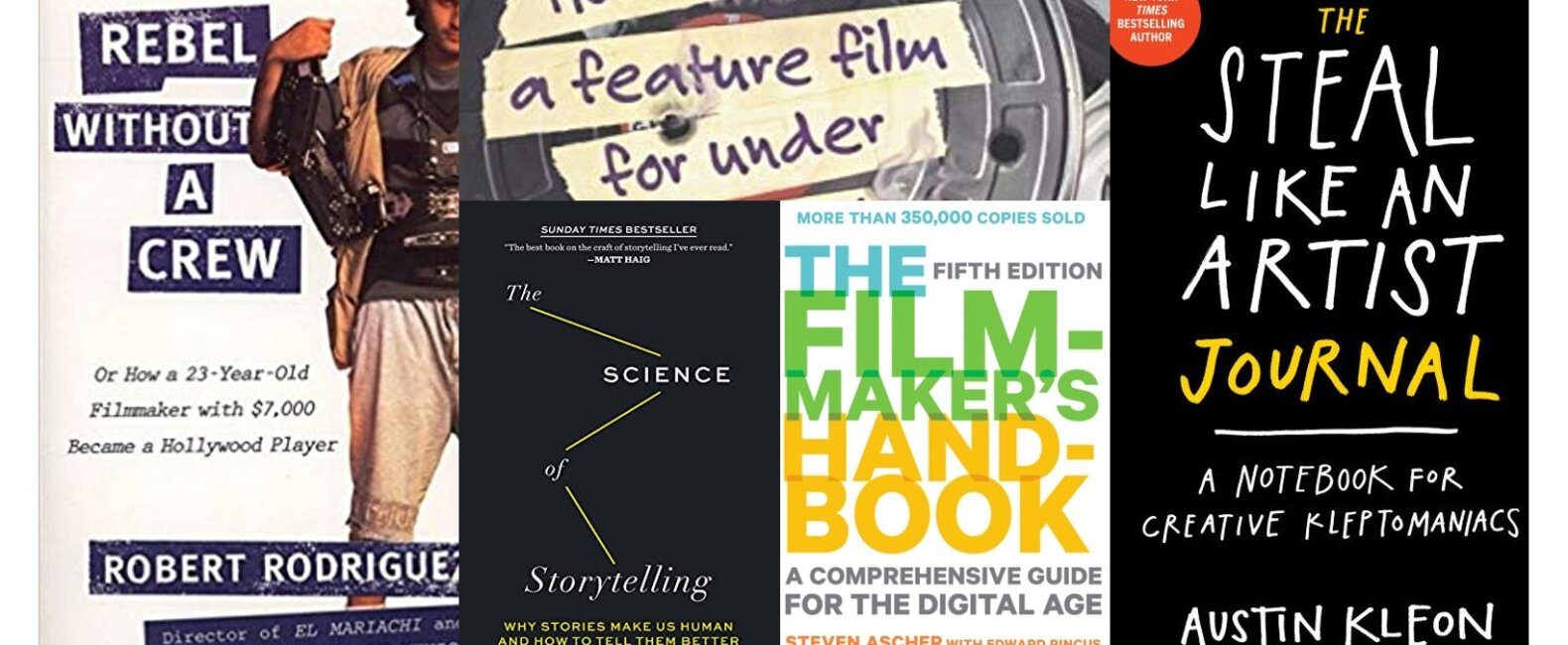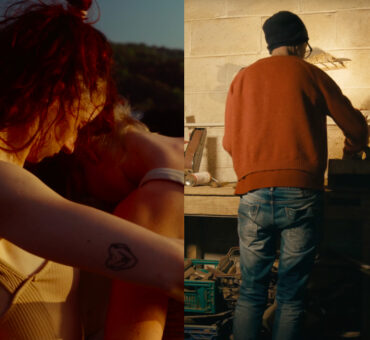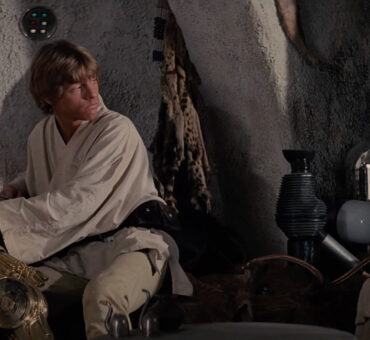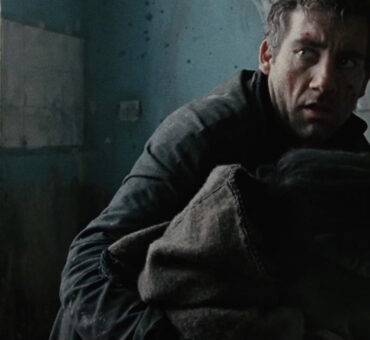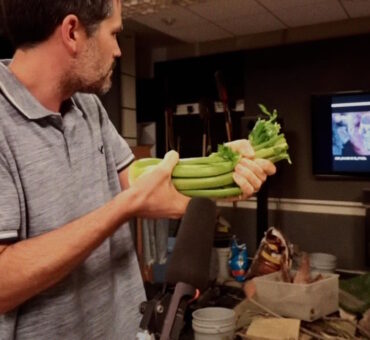One of the keys to success in filmmaking is that you never stop learning. To stand still and rest on your laurels is to stagnate and fall behind. Even the greats—the Spielbergs and Scorseses of the world—continue to adapt and grow. A large part of this continuous learning process is the simple joy of watching and studying work from other filmmakers that you look up to. But there’s another key factor that shouldn’t be overlooked here. Just like any other industry and skill set out there, filmmaking books are essential if you want to master this craft.
As American art director Paul Rand once said, “You will learn most things by looking, but reading gives understanding.” As for Spielberg? He has a great quote, too: “Only a generation of readers will spawn a generation of writers.”
So the question is, what do you read? Under the wide umbrella of filmmaking as a category, you’ll find all kinds of books on filmmaking covering various different topics from how to produce feature-length films, or specific skills such as editing and writing, to the philosophy of storytelling, behind the scenes of documentaries, and the history of cinema. From Sidney Lumet to David Mamet and Walter Murch, renowned filmmakers with decades of experience have gifted us their knowledge in revelationary, page-turning books about filmmaking. To help get you started, below, we’ve categorized 16 of the best books on filmmaking that have all been given the seal of approval from film students to teachers, independent filmmakers, acclaimed directors, and film editors.
Filmmakers on Filmmaking
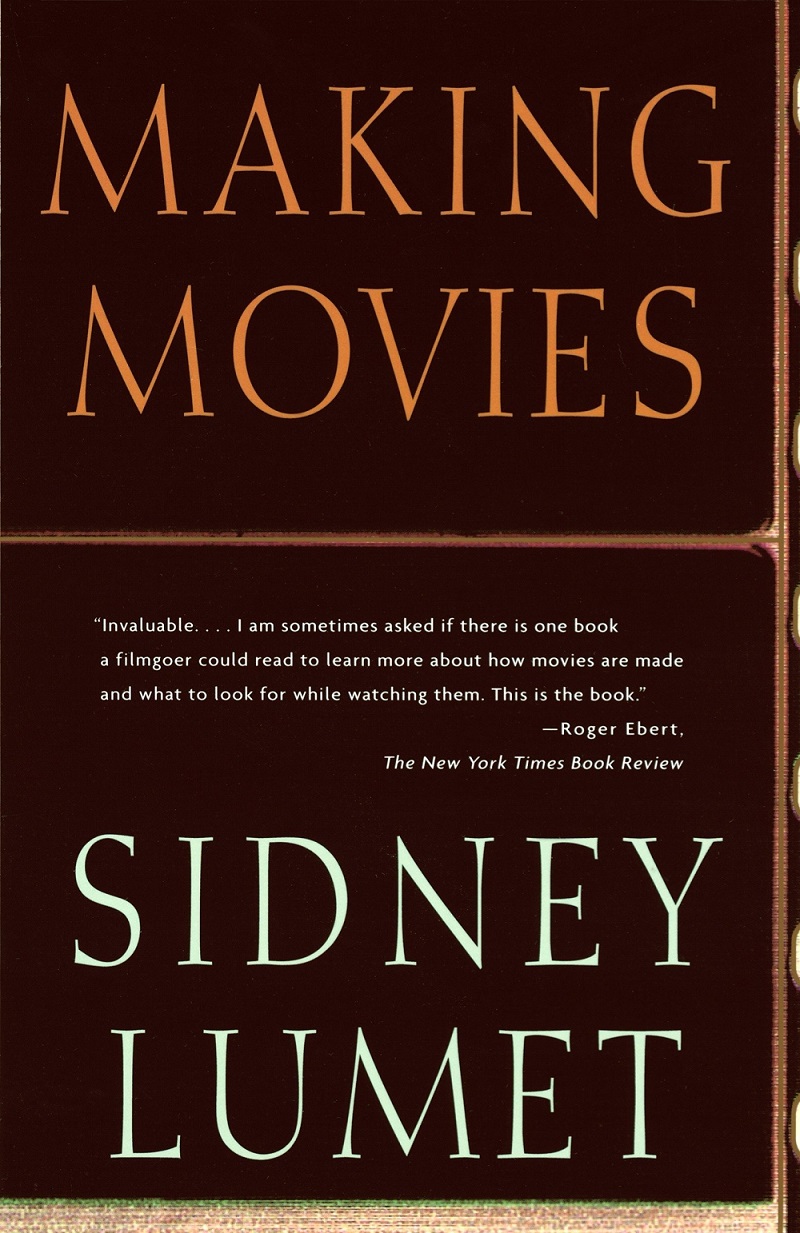
Making Movies, by Sidney Lumet
It’s near-impossible to summarize the whole craft of filmmaking in just one book, but Sidney Lumet—one of America’s most renowned directors in the 20th century—may well have done it. With decades of experience, Lumet delivers lessons, practical knowledge, and anecdotes about filmmaking from beginning to end. It’s an ode and insight into the blood, sweat, and tears that all pour into that finished film playing proudly on the silver screen. Many agree that this is one of the best filmmaking books out there.
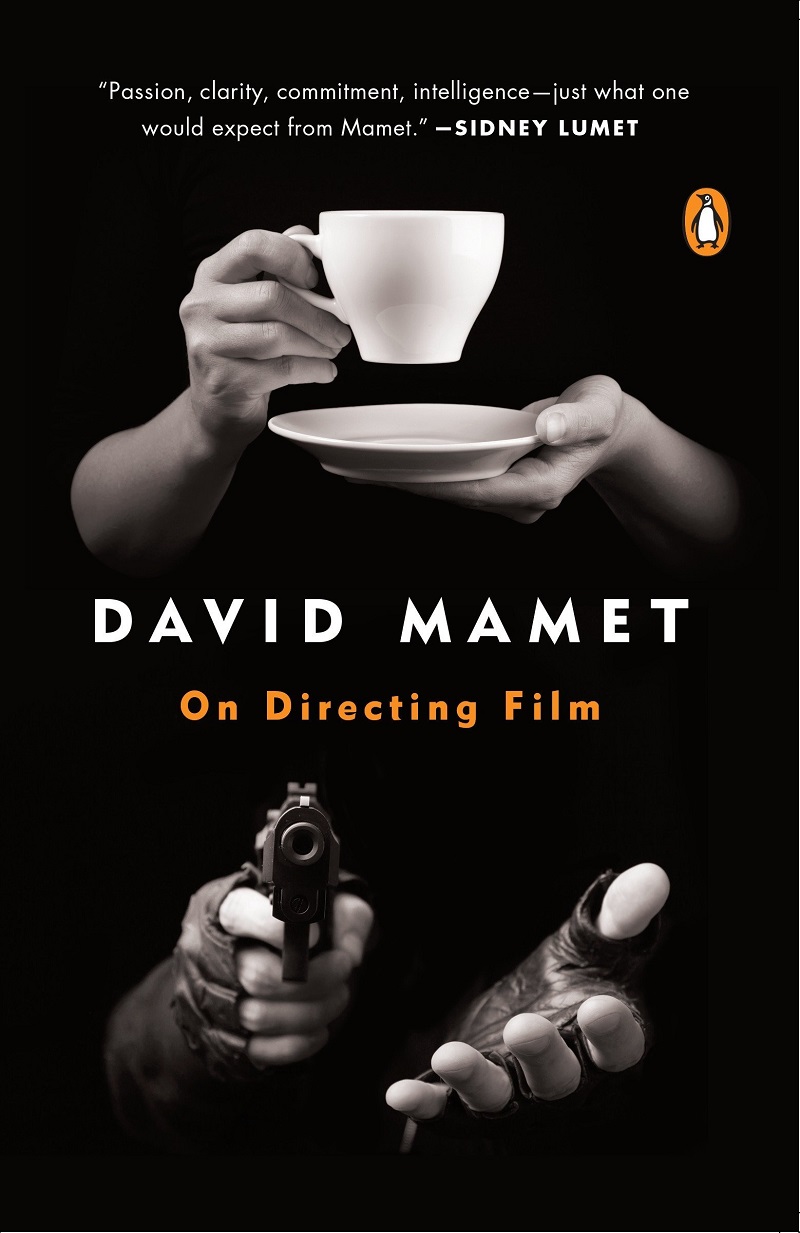
On Directing Film, by David Mamet
Regarding the best filmmaking books, you’re looking for knowledgeable authors who know what they’re talking about. David Mamet is one of the best places to do so. An Oscar and Tony-nominated Pulitzer-prize winner, Mamet draws on his many filmmaking experiences to show how a film is made. He breaks down the different aspects of directing from script to the cutting room, laying out how a director tells their story with—according to Sidney Lumet— “passion, clarity, commitment, and intelligence—just what one would expect from Mamet.”
Practical Guides
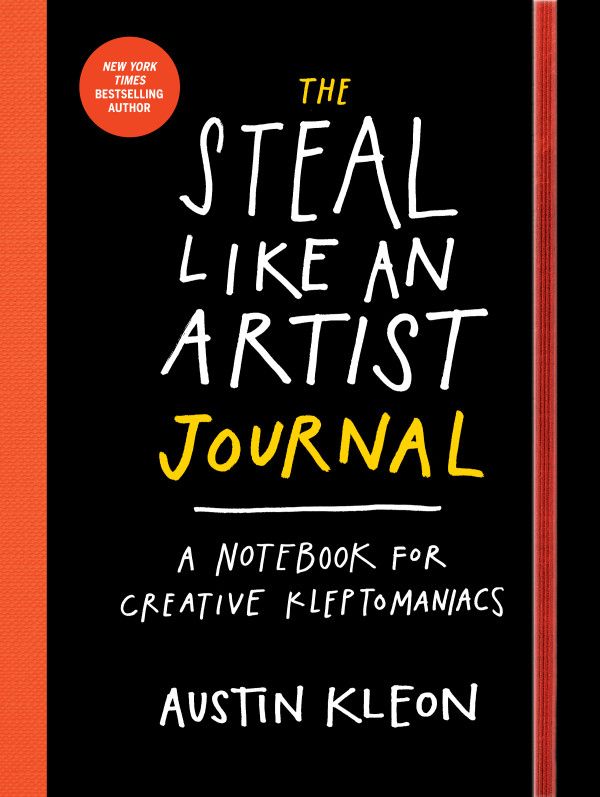
Steal Like an Artist, by Austin Kleon
For any bookish creative, Steal Like an Artist is an absolute must-have on your bookshelf. Chances are, you may have already heard of it. It’s that popular, and with good reason. Part manifesto, part how-to, Austin Kleon brilliantly demonstrates how all creative work is iterative. No idea is original, and actually, we’re all being influenced by each other. This is essential learning for any filmmaker. No matter your career stage, this book gives permission and encouragement to study those you look up to, take influence from what you consume, and use those “good bits” in your own work, to create something that you really love.
Cinematography

If It’s Purple Someone’s Gonna Die, by Patti Bellantoni
To understand cinematography is to understand the language of filmmaking. This brilliant book by Patti Bellantoni dives into the world of color, revealing how our directive choices evoke different emotions. The book is a mix of Bellantoni’s own research and experience, as well as fascinating conversations with some of her colleagues, including renowned cinematographer Roger Deakins, award-winning production designers Henry Bumstead and Wynn Thomas, as well as plenty more. When you close this book on the last page, you’ll be an expert on how color communicates what isn’t being said.
Video Production

The Filmmaker’s Handbook: A Comprehensive Guide for the Digital Age, by Steven Ascher & Edwards Pincus
You may have heard of this one being referenced as a “bible” for all things video production – that would be an accurate description. Updated through several different editions, this manual can be found in film schools worldwide. Clear and comprehensive, you’ll find a wealth of knowledge on techniques for making narrative, documentary, corporate, feature films, and more, as well as a solid foundation for understanding lenses, lighting, editing, and even the business of the film industry. If it sounds like a must-have, that’s because it is.

How to Shoot a Feature Film for Under $10,000, by Bret Stern
Even acclaimed directors have to start somewhere. For those just starting out—the budding independent filmmakers of the world—this is one of those priceless filmmaking books that will show you the ropes on how to shoot your first feature film for a relatively cheap, modest budget. Never taking himself too seriously, Stern sprinkles useful information in a light, fun read that will leave you with new ideas and a feeling that anything is possible. Originally written in 1999, a lot has changed in film production, but the ideas, theories, and general attitude remain solid.
Screenwriting

Draft No. 4: On the Writing Process, by John McPhee
With that Spielberg quote still fresh in your mind, Draft No.4 is essential reading for any screenwriter. Drawing from his experiences and university teachings, John McPhee delivers compelling essays about the craft of writing, offering solid guidance on the decision-making process regarding arrangement, diction, tone, and shape of your writing. With diagrams and personal anecdotes that take you through the whole process of reporting, drafting, and (many) revisions, you’re in good hands here.

The Science of Storytelling, by Will Storr
Ground down to its basic form, any good film, any marvelous piece of screenwriting, is simply good storytelling. That’s why understanding the science behind it is so useful when it comes to the filmmaking process. In this book, Will Storr expertly guides us through what exactly makes a story work, showing us how they shape who we are—how they’re essential in what makes us human. Referencing incredible bodies of work such as Harry Potter and Breaking Bad, will leave you a better, more accomplished filmmaker.
Film Editing Books

In The Blink of an Eye, by Walter Murch
When it comes to story, the film editors are the ones who tie it all together. Walter Murch’s essay on film editing is a definitive guide for any aspiring editor. Drawing from the wealth of his personal experiences (some small, unknown films such as Apocalypse Now and The Godfather Part II), Walter delivers fascinating insights into how to master the craft of editing, from a basic editing question such as “what makes a great cut?” to the nuances of a character dreaming, or concerns around continuity. Make sure you pick up the second edition for his thoughts on digital editing.

Cut to the Chase: Forty-Five Years of Editing America’s Favourite Movies, by Sam & Bobbie O’Steen
A real page-turner with anecdotes about exotic locations and colorful producers, acclaimed directors, and stars, Bobbie O’Steen has given us a great insight into the world of film editing. Her father, legendary Hollywood editor Sam O’Steen provides plenty of humor and tidbits on what made the great commercial studio pictures of the time really tick. As one reviewer eloquently puts it, it’s “like sitting in a cozy bar with Sam, over a few beers, and listening to the acute wisdom he absorbed like a sponge over many decades”.
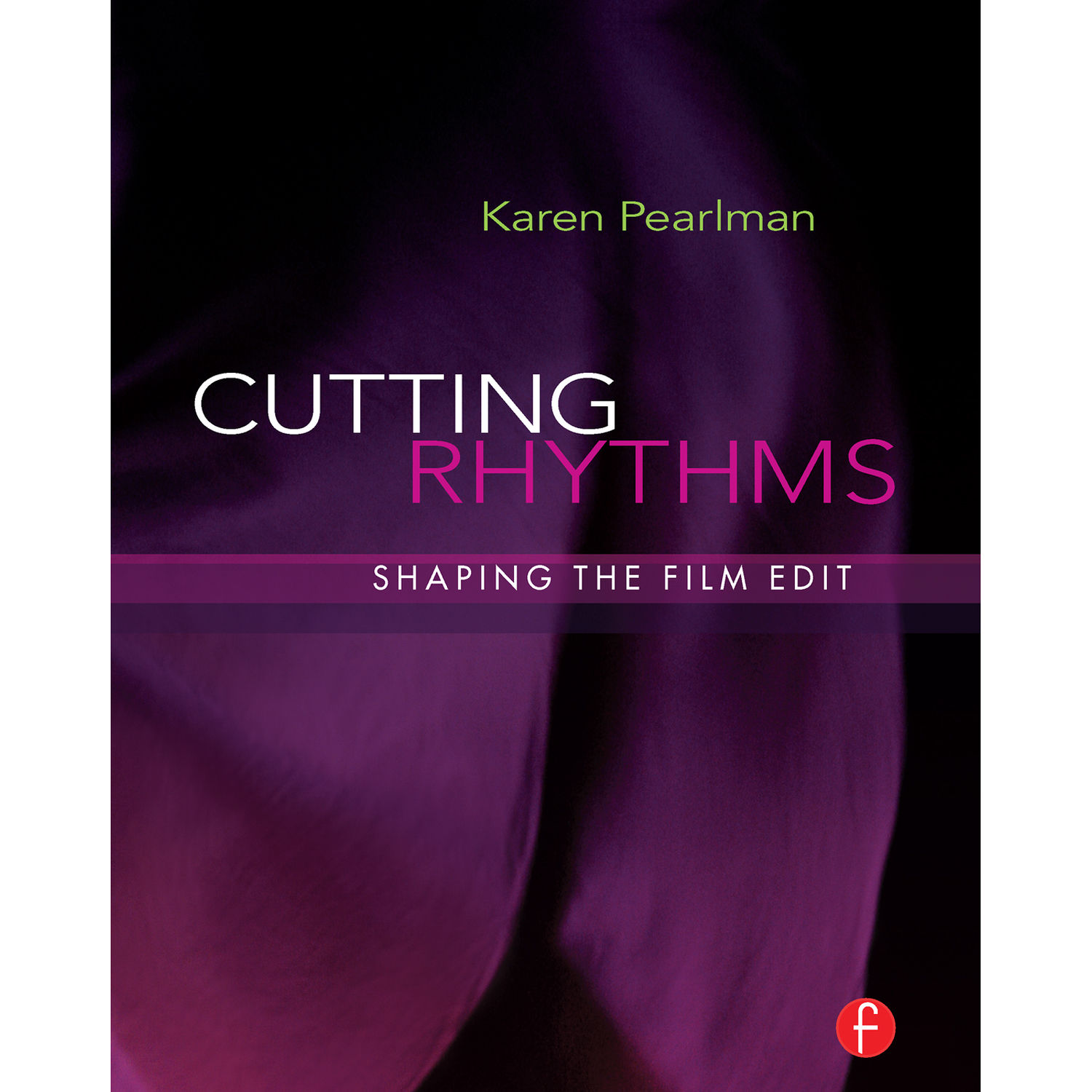
Cutting Rhythms, by Karen Pearlman
If you’re curious about editing in the film industry, or just a basic editing question such as knowing when and where to cut a film so that it “feels right”, Cutting Rhythms is for you. Breaking down the definition of intuition and looking at how an editor affects the entire pace, structure, and mood of a film, this book gives you the tools to develop your own sense of rhythm, increase your creativity and ultimately make you a more assured, accomplished filmmaker.
Filmmaker Biographies
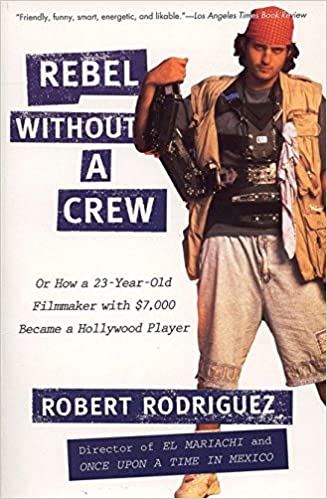
Rebel Without a Crew, by Robert Rodriguez
While a lot of beginners and independent filmmakers may never get to realize their dreams of producing feature films, reading this great book from filmmaker Robert Rodriguez can help you get there. Presented as a diary and how-to manual, Rodriguez shares everything he did in the journey to creating his influential debut film El Mariachi—all for just $7,000. He’s gone on to direct Sin City, Once Upon a Time in Mexico, Spy Kids, Machete, and more, so he’s doing something right. In the appendix you’ll find a particularly handy “The Ten Minute Film Course,” which is a very useful guide on how to save thousands of dollars on film school and teach yourself the ropes of film production, directing, and screenwriting.
Documentary Filmmaking
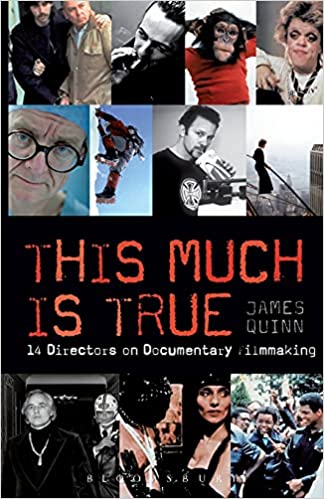
This Much is True: 15 Directors on Documentary Filmmaking, by James Quinn
For anyone interested in reading about the documentary filmmaking process, what better place to start than this? This Much Is True is a collection of essays from some of the genre’s greatest filmmakers, including Nick Broomfield, Kevin Macdonald, James Marsh, and Albert Maysles. They provide fascinating insight on access and interviews, thinking in pictures, emotions, character-led filmmaking, and editing. Without a doubt, this is one of the best documentary filmmaking books you can read.

The Cinema of Werner Herzog: Aesthetic Ecstasy and Truth, by Brad Prager
As far as books on documentary filmmaking go, it would be criminal not to mention Werner Herzog in this category. All film students, independent filmmakers, and anyone involved in the film industry should sit up and listen when we talk Werner Herzog. Prager explores Herzog’s ongoing search for “ecstatic truth”, analyzing over 35 of the acclaimed director’s films, focusing particularly on his style of cinematic composition, influences, and a fascination with war, colonialism, and madmen. It’s a real page-turner for any documentary lover.
History of Cinema

The Oxford History of World Cinema, by Geoffrey Nowell-Smith
With something as large and influential as the film industry, how do you possibly begin to recount it all? The answer is you probably can’t, but this history of worldwide cinema comes mightily close, with Geoffrey Nowell-Smith covering all the aspects of how cinema developed and evolved to the stars we know and love, their cultural impact, the studios and the diversity seen from animation to avant-garde, from Hollywood to Hong Kong. It may not be definitive because no book truly can be, but this is a fantastic guide to worldwide cinema – a book that will leave you far more knowledgeable by the end compared to when you start.
Film Business: Finances & Distribution

The Business of Film: A Practical Introduction, by Paula Landry and Stephen R. Greenwald
It’s not the favored subject of filmmakers and it’s not the sexiest as far as the best books on filmmaking go. But knowing the business of filmmaking is essential and this book does a great job of getting you up to scratch. Landry and Greenwald walk you through a practical, hands-on guide to the business of filmmaking. They cover everything from exploring development, production, financing, distribution, various business models, to marketing, platform delivery, film festival, and accounting…you name it, it’s in here. You’ll find detailed case studies from projects with different budgets and markets that illustrate the points nicely, accompanied by charts and graphics.
It’s worth picking up the extended second edition which includes analysis on newer players and platforms such as Netflix, Google, Amazon, and Vimeo.
Wrapping up
So, those are 16 of the best books about filmmaking. The truth is, there are plenty more out there—these are just some of the top picks that come highly recommended throughout the industry by film students and Oscar winners alike. To become a filmmaker is to commit yourself to life or learning and growth. By picking up these books and absorbing the priceless knowledge inside each and every one of them, you can level up your filmmaking skillset and hone in on your craft.


